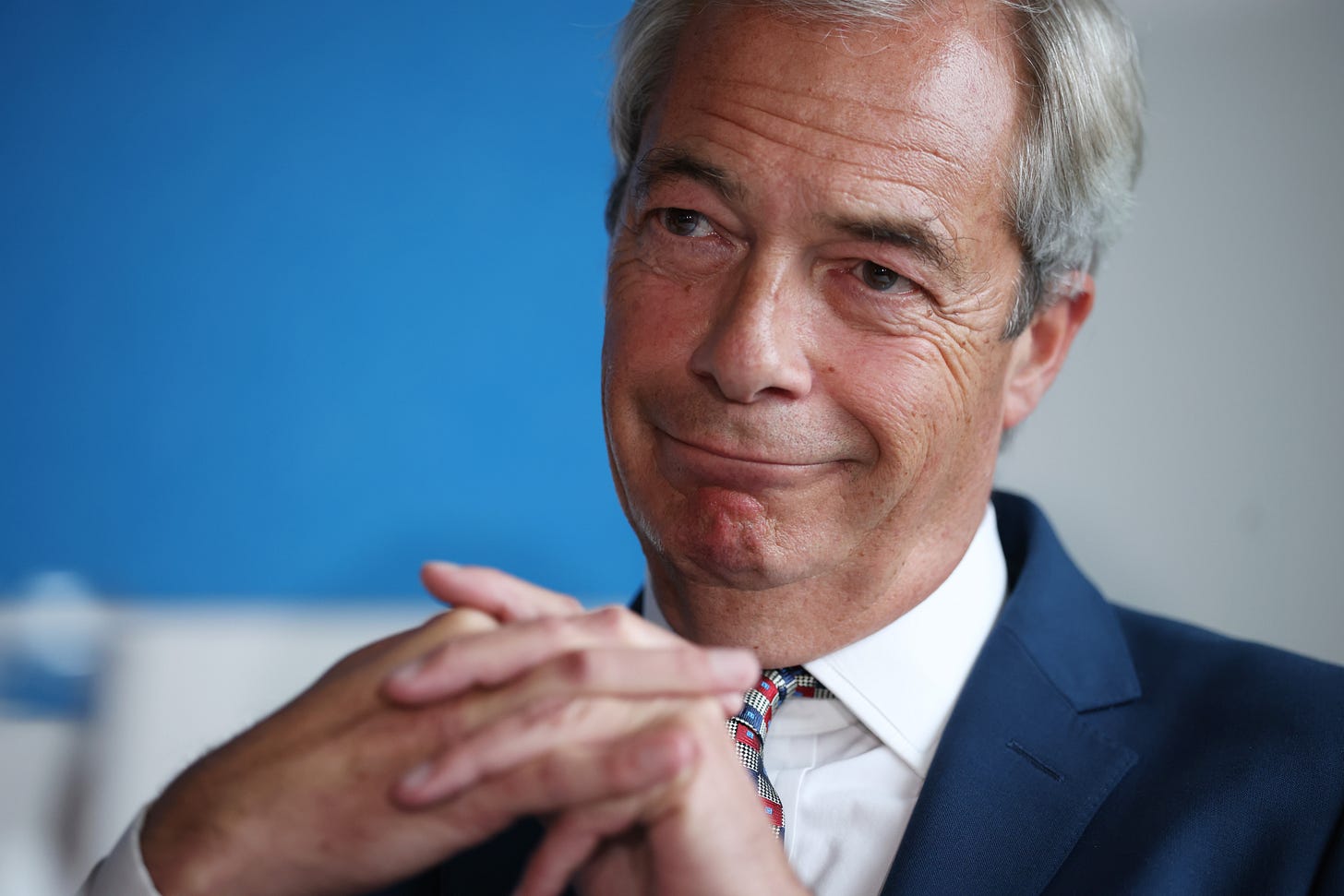Can anyone stop Reform?
Nigel Farage’s party looks like a juggernaut. But the real test is whether it can sustain momentum until the next election.
‘In politics, there is no use looking beyond the next fortnight.’ This was how the Liberal politician Joseph Chamberlain put it in 1886. More famously, Harold Wilson claimed in the early 1960s that ‘a week is a long time in politics’. We might pay heed to these little nuggets of wisdom now that so many amateur prophets are claiming that Reform UK have got the next election sewn up.
True, the polls are tending in that direction. A new BMG poll commissioned by The I Paper found that Reform has surged to a 15 point lead over Labour. Only 20 per cent of voters would vote Labour if a general election were held now, compared to 35 per cent for Reform. The Conservatives are faring even worse, with only 17 per cent support from the electorate. This has been described as a ‘shock poll’, but in reality it’s entirely expected. When every major successive poll produces a similar outcome, the shock value is somewhat diminished.
It has even got to the point where writers for the Guardian are urging the government to ditch the first-past-the-post (FPTP) electoral system in favour of proportional representation (PR). Whereas at the last general election FPTP granted only five seats to Reform on the strength of four million votes, the rising approval for the party now means that the system works in its favour. It would mean that Nigel Farage only needs 30 per cent of the popular vote to be installed in 10 Downing Street. But there is little probability of Labour altering a system that enabled it to claim 63 per cent of parliamentary seats on just 34 per cent share of the vote.
Debates about the merits of PR are plagued with inconsistency. Its opponents tend to abruptly change their minds when it becomes clear that the system would help their preferred party. It seems only fair to give credit to the Guardian (a phrase that has become increasingly rare these days) for supporting PR even when it would have benefited UKIP, a party that its editors have always loathed. Many will recall how the FPTP system resulted in only one seat for UKIP in spite of 3.9 million votes for the party in 2015, but the SNP snagged fifty-six seats on a paltry 1.5 million. FPTP was always anti-democratic.
Reform may appear to be an overnight juggernaut, but really its success represents the culmination of years of festering resentment. It makes sense that Reform is the Brexit Party reincarnate, given that the political dynamics at play today bear striking resemblances to the EU referendum. Once again, the electorate are well ahead of the ruling class, and the latter are left scratching their skulls. The debates over flags, and the fervid bitterness over the disaster of unchecked immigration under consecutive governments, all point to a public that is aware of something that its leaders are not; that the status quo is not working and needs to be smashed apart. And if you thought that Brexit was seismic, that will be nothing compared to the obliteration of a two-party dominance that has endured since the age of parliamentary factions.
— To continue reading this article, please consider becoming a paid subscriber —



